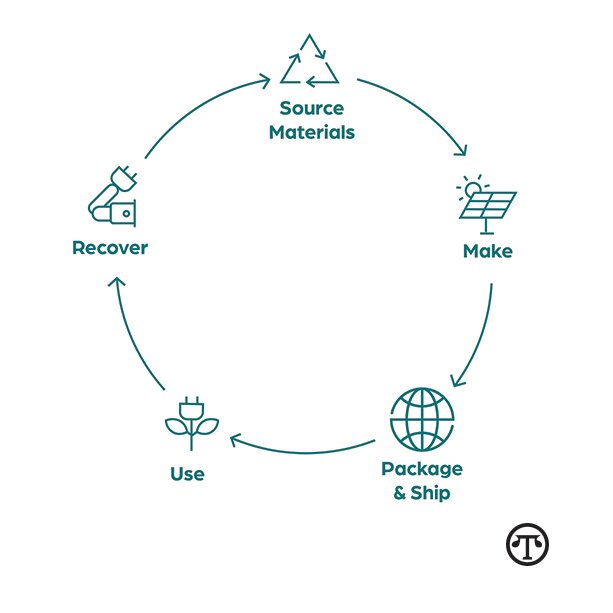 Post Classifieds
Post Classifieds
The AI Effect: Green Product Design Sees Sharp Increase

(NAPSI)—Good news for people concerned about the planet. Today’s resourceful industrial designers and engineers are utilizing artificial intelligence (AI) to develop quality products and limit environmental impacts.
Curbing Carbon Emissions
Right now, 80% of the total emissions of a product happen during its design phase. You’d think with that much impact tied to one stage of production, organizations would be looking high and low for a way to decarbonize products. But, until now, no one has been able to do it.
The complexities involved in identifying and implementing sustainable choices during the design process are one hurdle, as well as the dependence on specific expertise. Products often traverse multiple countries and manufacturing stages before reaching their final disposal stage, making data hard to capture.
But, there is another reason, too. Engineers—the makers and the builders of everything we use—are often not given the necessary information to make products with a smaller carbon footprint.
No one wants to make “bad” products. But “good” products are only possible when engineers have all the right data during the design phase. By investing in integrated data, organizations will support the engineer in their decision-making while accelerating innovation—and minimizing environmental impact—like we’ve never seen before.
Applying AI
Enter Makersite and its AI-powered platform that automates an analysis of a company’s current supply chain and design processes by integrating a robust database of supply chain data to enable product designers to make more informed decisions and greener products. Founded by CEO Neil D’Souza, Makersite is the only cloud-based platform utilizing AI to calculate the carbon emissions of every component of a product from creation to disposal in a lifecycle analysis.
During this process, AI offers unparalleled advantages in data collection, processing, and mapping across disparate systems, saving time and resources. Because it can analyze vast datasets, it provides a clear and accurate picture of a product’s environmental impact.
AI can quickly identify alternative materials or suppliers in real-time, so product teams can make smarter choices. With AI, product engineers and designers can automatically connect product components and manufacturing processes to the right supply chain data from a harmonized and hyper-connected database, instantly solving one of the most time-consuming problems: mapping data to multiple sources at a granular level.
The result is a detailed, extremely specific view into deep-tier supply chains, giving users a better understanding of environmental footprints, should-costing, and compliance risks increase at an unprecedented speed.
Makersite’s platform considers the entire lifespan of a product when calculating its environmental impact. This thorough analysis lets designers and engineers identify ways to reduce environmental damage not just in production, but in product use and disposal. It integrates with existing systems and workflows for a seamless supply of information and heightened efficiency in sustainability analysis, leading to more sustainable products and a greener planet.
For example, Microsoft is committed to reducing the environmental effects of its products through structured eco-design approaches. Using Makersite to automate and scale the product modeling process and supply chain-specific environmental impact accounting, Microsoft improved quality, increased accuracy, and reported better identification of environmental hotspots in the supply chain. This approach resulted in a 28% reduction of the carbon emissions from production of their Surface Pro 10 laptop.
The benefits of AI-driven product design will continue to evolve and enable even better decision-making, deeper tier supply chain visibility, and overall impact on climate change.
Companies considering applying AI to lifecycle analysis and sustainable product development can find useful facts and expert advice from Makersite at www.makersite.io.
On the Net:North American Precis Syndicate, Inc.(NAPSI)
Get Top Stories Delivered Weekly
Recent ucba-activist News Articles
Discuss This Article
MOST POPULAR UCBA-ACTIVIST

Diversity Focus Groups Report Scheduled for Jan. 14 By Activist Staff

A Look at UCBA's History Shows Growth and Demographic Changes By Ben Rigney, Activist Staff

UC Football Future By Ben Rigney, Activist Staff

Rihanna's Iconic Style Turns Heads By Brett Cummins, Activist Staff
GET TOP STORIES DELIVERED WEEKLY
FOLLOW OUR NEWSPAPER
LATEST UCBA-ACTIVIST NEWS
RECENT UCBA-ACTIVIST CLASSIFIEDS
OUTSIDE THE LINES
- 1 in 5 Vehicles on the Road Has an Open Recall—Yours C...
- A Difficult Diagnosis Sparks Hope and Support for...
- Fall For Improved Vehicle Protection
- Six Ways To Save Money This Holiday Season
- BigFuture Resources Help Students Discover College,...
- Anheuser-Busch Celebrates American Growers on National...
- What You Should Know About Healthy Aging
- What We Don’t Know Can Hurt: New Survey Reveals K...
- Blood Donors Quietly Revolutionizing Sickle Cell Treatment
- What You Need To Know About Vaccines On World Polio Day...
FROM AROUND THE WEB
- BookTrib’s Bites: Dive Into These Four Exciting Fall Reads
- Easy Monster Margarita is No Trick, All Treat
- Help Marine Toys for Tots Deliver Hope to Children in...
- 5 Tips to Pick the Right Dental Plan
- BookTrib’s Bites: Four Fascinating Fall Reads
- The U.S. Can Make the Most of AI in Robotics
- Have a Boo-tiful Halloween with Chilean Citrus
- 5 Ways to Transform Your Kitchen and Bath with the Look...
- Many American Women Feel Financial Stress
- BookTrib’s Bites: Four Captivating Fall Reads



